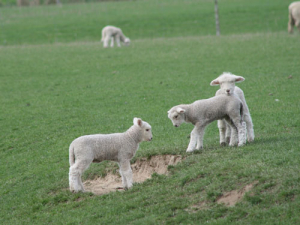He says 0.59% of lambs processed in the season ending October were detected with sheep measles versus 0.64% last season.
Lynch believes this low prevalence reflects continuing onfarm control being exerted by farmers across NZ. “This is a great outcome.”
He says it is now rare to meet a sheep farmer not treating their dogs for sheep measles; the latest survey data shows that farmers continue moving to monthly treatments to break the life cycle of the parasite.
“Over the years, we have met many people treating their dogs three-monthly for parasites and telling us they are on a sheep measles programme,” Lynch explained.
“However, [given] they are on a dog health programme, their relying on three-monthly dog treatment for sheep measles control is inappropriate when they are seeking to control a parasite with a 35-day life cycle.”
He said farmers are also increasing pressure on visitors, such as contractors, hunters, etc, not to bring dogs onto their farms. “Or if they do they must have evidence of treatment.”
Lynch says one area being closely monitored, which has been highlighted in surveys, is the higher sheep measles prevalence seen in trading lambs compared to those bred and finished on the same farm.
“This is despite those suppliers finishing the lambs having the same level of onfarm control as breeder finishers.”
Meanwhile he says Ovis Management is continually looking at methods of increasing feedback to those who breed, but don’t finish, lambs; currently the feedback loop ends with the finisher.
“We are looking to target back down the production chain to ensure lamb breeders who are not sending stock for processing are aware of the need to have an effective onfarm control programme in place.”

















